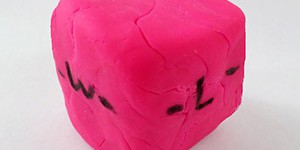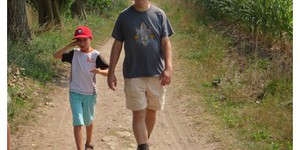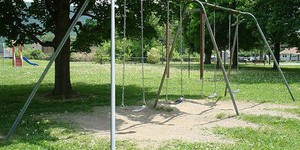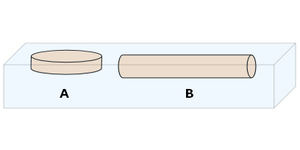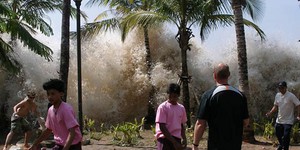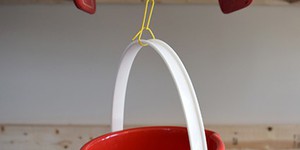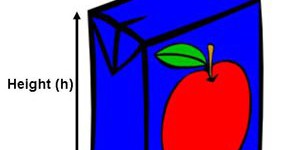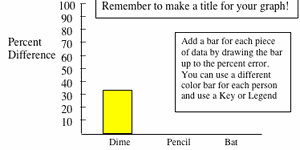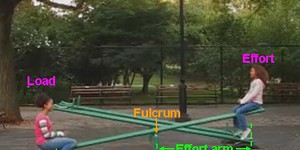Others Like “Think Fast!” (top 20 results)
|
When your parents were kids, they probably wore polyester. Static cling was a major household issue! Now everybody wears cotton, which does not get static cling nearly as much. Why are some materials more susceptible to static cling than others? Investigate how well different materials produce static electricity by making a homemade electroscope and testing it out in this science project.
Read more
Have you ever had fun making different figures or colorful creations using some Play-Doh? You can squish and stretch a single piece of Play-Doh® to make all sorts of shapes. How does changing the shape of a piece of Play-Doh affect its volume? In this science project, you will find out by testing how changing a piece of dough's shape affects its dimensions (length, width, and height), and how these changes are related to the dough's volume.
Read more
Do you ever feel like you need to move your legs faster than your parents do just to keep up with them? This could be because of the difference in leg length between you and your parents. How many more steps do you need to take compared to your parents to walk down the block? Can you use a walking test to determine how tall a person is? This science project will help you find out! You can even use your phone and a sensor app to record the steps and determine the pace.
Read more
"Swing me higher, Mommy, higher!" Kids love to ride the swings at the playground. The back-and-forth motion of a swing demonstrates the physics of a pendulum. In this experiment, you will investigate the factors that affect the speed and duration of a pendulum's swing, also called an oscillating motion. You can even use your phone and a sensor app to record your pendulum's movement and determine its period of oscillation.
Read more
This science project presents an interesting puzzle. A disk of wood will float face-up; that is, with its circular cross-section parallel to the surface of the water. A long log of wood, however, floats on its side with the circular cross-section perpendicular to the surface of the water. If you think about it, disks and logs are both cylinders. Is there some intermediate length of cylinder that floats with the circular cross-section at a tilted angle? Try this experiment to find out!
Read more
A tsunami is a series of waves made in a body of water, like the ocean, that can cause serious destruction when they hit the coastline. In deep water, a wave can be just a few feet high and travel very fast. As it nears the coastline, and moves into shallower water, tsunamis usually slow down, but the wave height can grow to 100 feet! In this ocean science project, you will model a tsunami and investigate how wave velocity (speed) depends on water depth. Does it match the mathematical equation…
Read more
Hooke's law says that the opposing force of a spring is directly proportional to the amount by which the spring is stretched. How accurately Hooke's law describe the behavior of real springs? Can springs be used to make accurate scales for weighing objects? Spring into action and find out for yourself with this project.
Read more
Juice boxes are so convenient—just poke the straw in and sip away! But have you ever noticed that some juice boxes don't seem to have much juice, even when they have a lot of packaging? It might surprise you how much thought goes into the design and manufacturing of a juice box. Each manufacturer has carefully calculated how big each side should be to hold a certain amount of juice inside. In this science project, you will find out how different brands of juice measure up.
Read more
Measurements are very important for scientists. It is especially important that the measurements be accurate. Think about how important accuracy is when you want to know if you are taller than a friend of yours, every inch counts! In this experiment, you will investigate how different objects can be measured with accuracy. Are small or large objects more difficult to measure? Who in your family is the best at measuring? Maybe it will be you!
Read more
Did you know that you can lift an object that's heavier than you are? Just use a lever! In this science project you'll build a tabletop lever and measure how much effort it takes to lift an object using it.
Read more
|
Explore Our Science Videos
Write and Read Braille – STEM activity
Popsicle Stick Chain Reaction -STEM activity
Build A Wall Marble Run!




